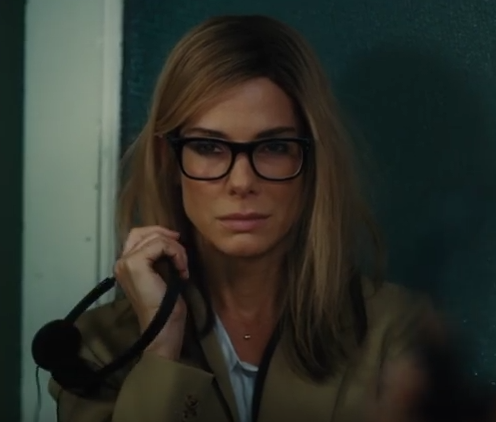
A crisis of conscience? Sandra Bullock in Our Brand is Crisis.
In the cinematic equivalent of a busman’s holiday, I took a break from tedium of the EU referendum to watch Our Brand is Crisis – a movie about cynical electioneering. While we’re talking buses, I should probably warn you that this uneven satire about politics and personal redemption features the sight of Sandra Bullock “mooning” her rivals from aboard a speeding bus. The bad news is that it’s a lot less enjoyable than just watching Speed.
After six years in self-imposed exile, ace political strategist “Calamity” Jane Bodine (Sandra Bullock) is lured back to work on a presidential election campaign in Bolivia of all places. Her client is former President Pedro Castillo (played by Joaquim de Almeida), who is languishing 28 points behind front-runner Victor Rivera (Louis Arcella) in the polls.
Castillo is “arrogant, out of touch” and very bad at dealing with the public – his low point comes when he “eggs” a protester. Can Jane “change the narrative”, make Castillo the winner and give the beleaguered citizens of Bolivia a leader they really don’t want? To coin a phrase popularised by the great Sarah Palin – You betcha!
In true movie-cliché fashion, Jane’s maverick genius personality is signalled by her shambolic appearance and poor eating habits (she binges on potato chips), punctuated by moments of political insight. But her real challenge – both personal and professional – comes in the shape of nemesis Pat Candy (Billy Bob Thornton), who is representing Rivera and will pull every trick in the book to get into Jane’s head and remind her of past failures.
“Just warming up the llama for you, senator,” says Jane’s colleague Nell (Ann Dowd) during the shoot for a campaign commercial. Moments later, that cuddly llama becomes a martyr to the cause.
With a screenplay by Peter Straughan (Wolf Hall) Our Brand is Crisis raises expectations of nuance and sophistication that aren’t fulfilled. The film is book-ended with earnest interview scenes in which a thoughtful Jane is revealed to have had a change of career and, apparently, a change of heart. Sandra Bullock gets to show off those great legs, as Jane mopes around her hotel room in her pants, looking as though she’s conflicted about her job. She bonds with an idealistic young campaign worker Eduardo (Reynaldo Pacheco), who is the one person in the movie who believes Castillo is actually a good guy.
But Our Brand is Crisis feels as though it’s burdened by what I call “ER goes to Africa” syndrome, in which wealthy Americans travel to a developing country to battle their personal demons. So here the problems of debt-ridden Bolivia and its citizens (Eduardo has lost both his parents) are a mere backdrop for the mid-life crisis that has engulfed the single, childless Jane.
This film would have worked better if it had played to its strengths and given us more screwball comedy and less of the soul-searching. There’s plenty of quick-fire dialogue and quipping here, with just about all the characters (except the llama) quoting freely from Sun Tzu, Adlai Stevenson and even Goebbels. But though the performances are good (particularly Bullock, Thornton and de Almeida), the action is undermined by David Gordon Green’s flat direction and the fact that you can guess the outcome of the campaign.
According to IMDb, some scenes in Our Brand is Crisis were shot in La Paz and the film has its origins in Rachel Boynton’s 2005 documentary of the same name. They should have ditched the subtitles, the llama and the local colour because this would have worked better as a smart, sophisticated comedy set in Washington, DC.



